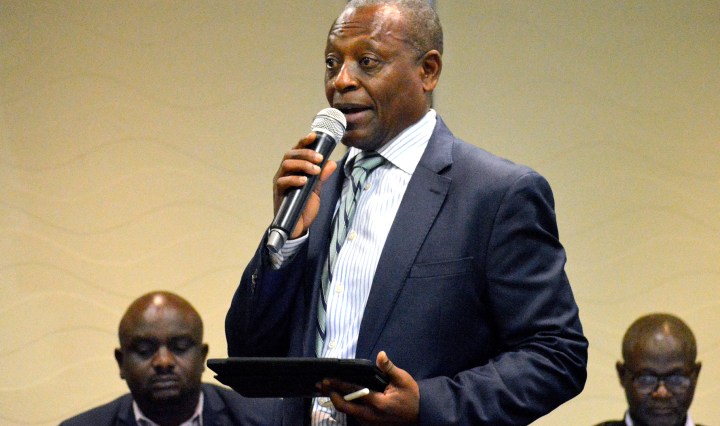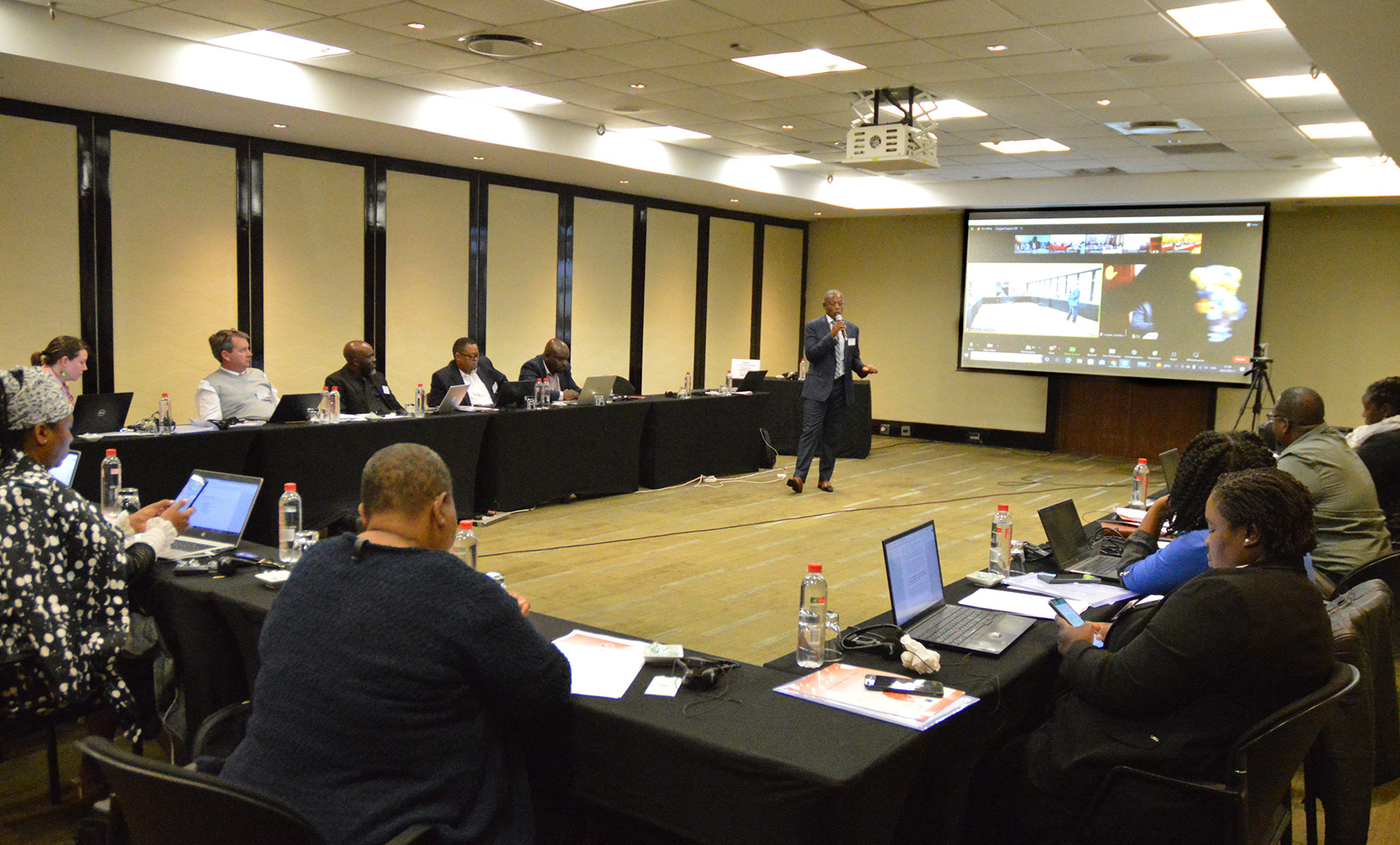FOCUS ON SADC OP-ED
Activists raise the alarm over lack of funds for SADC’s regional development plan

Two years into a 10-year regional development plan, approved by SADC Heads of State, there are concerns over poor mobilisation of resources to support its implementation, poor reporting on progress by member states to SADC and non-existent or poor-performing National SADC Committees.
In August 2020 the SADC Summit of Heads of State and Government approved the Regional Indicative Strategic Development Plan (RISDP) 2020-2030 to deepen regional integration, end poverty and spur socioeconomic development.
The RISDP covers strategic priority areas that include peace, security and good governance; social and human capital development; cross-cutting issues including gender, youth, environment and climate change; and disaster risk management.
Two years into the 10-year plan, there are concerns over poor mobilization of resources to support its implementation, poor reporting on progress by member states to SADC and non-existent or poor-performing National SADC Committees.
Against this backdrop, a three-day regional dialogue for Non-State Actors (NSAs) was convened in Johannesburg on 13 September. The dialogue sought to enable civil society organisations across southern Africa to assess progress of the implementation of the RISDP.
The conveners were Southern Africa Trust, Economic Justice Network of the Fellowship of Christian Councils in Southern Africa, Southern African People’s Solidarity Network, Southern Africa Coordination Council, Gender Links, Media Institute of Southern Africa, and the Partnership for Social Accountability (PSA) Alliance, a well-known consortium of ActionAid International, the Public Service Accountability Monitor of Rhodes University, the Eastern and Southern Africa Small Scale Farmers’ Forum and SAfAids.
Resourcing the Plan
In a presentation on “Understanding the Resourcing of the RISDP at Regional and National levels – Commitments, Barriers and Reporting”, independent consultant Daniel Chiwandamira said regional priorities, assumptions and estimated resource requirements were approved by the SADC summit in August 2020, and RISDP 2020-30 was the main blueprint to the attainment of the SADC Regional Integration agenda, drawing long-term direction from the Vision 2050.
“The RISDP 2020-30 Implementation Plan 2021 was costed to enable the realistic design of strategies that take account of affordability and identify the resource gaps to be used as a basis for resource mobilization,” he said.
Chiwandamira said all stakeholders in the SADC region have an obligation to mobilise funds for implementing the RISDP.
Chiwandamira urged NSAs to put pressure on authorities to operationalise some of the funding options open to the region. He indicated that the total cost of implementing the RISDP has been estimated at $413,463,280 over a 10-year period.
He gave the following breakdown of the anticipated costs of implementing the planned RISDP activities over a 10-year basis:
- “Strategic Management would cost $14,257,167, which is 4% of the total estimated costs.” Chiwandamira added that implementation of activities in Pillar 1, Industrial Development and Market Integration, are estimated to cost a total of $134,781,721 or 33%.
- “Activities in Pillar 2 under which Infrastructure is covered, are projected to cost $62,007,344 or 15% of the total implementation costs”.
- Implementation costs for activities under Pillar 3 which include Social and Human Capital Development were estimated at $15,820,228, representing 4% of the total projected implementation costs.
- Provisions for Pillar 4 activities involving Cross-Cutting Issues were estimated at $102,336,572 which is 25% of the total projected costs for the 10-year implementation period.
- The estimated costs for the Foundation, which involves Peace, Security, and Good Governance, were estimated at $84,260,249, translating to 20% of total projected implementation costs.
Regional Development Fund
The consultant highlighted challenges with potential funding channels, and said the region needs to act fast if it is to save the situation. He argued that an envisaged Regional Development Fund (RDF) would be critical in financing crosscutting programme integration, management and mainstreaming.
“The biggest challenge for RDF is operationalisation. The agreement to operationalise it was approved in 2016 and member states (MS) have since put in place internal measures to expedite operationalisation of the fund,” he said adding that NSAs must put pressure on authorities to get the fund moving.
He said the fund creates regional funding mechanisms for economic development with a focus on integration and a contemplated membership of member states, International Cooperating Partners (ICPs), and the private sector.

Independent consultant Daniel Chiwandamira speaks during a dialogue for non-state actors and other partners gathered in Johannesburg to assess progress on the implementation of SADC’s 10-year RISDP strategy. (Photo: Moses Magadza)
“SADC is looking to engage ICPs for equity participation and grant allocation with an initial authorised capital of $13-billion,” Chiwandamira said, adding that a consultancy was underway to review options to operationalise the fund.
He noted that global economic shocks were contributing to member states not committing to the Fund.
Agricultural Development Fund
Chiwandamira observed that the potential funding channel for agriculture was the Agricultural Development Fund (ADF).
This fund is designed to accelerate the implementation of the RAIP 2017-2022 and focuses on several facilities, including agricultural infrastructure; markets and trade; agricultural information management; food and nutrition security; environment and natural resources; and governance and institutional development.
“The challenge with the ADF is also operationalisation and there is a clarion call for NSAs to put pressure to bear for the fund to start,” he said.
Chiwandamira said as of July 2020, the Green Climate Fund (GCF) had raised $10.3-billion in pledges from 49 countries and the SADC Secretariat had commenced the process of accreditation to the GCF.
“The Development Bank of Southern Africa had also sought accreditation to support the GCF whose projects include Climate
Visit Daily Maverick’s home page for more news, analysis and investigations
Resilient Systems for SADC Water Sector: SADC Hydrological Cycle Observation System,” Chiwandamira noted.
Other potential funding channels for agriculture are the Global Environment Facility (GEF) and the Adaptation Fund.
“The GEF addresses issues of climate change, food security, land degradation, etc and engages in stakeholder engagement for design and implementation of GEF projects including CSOs, private sector, indigenous people and so on.
“Projects include Develop and Enable Sustainable Management of Groundwater at National and Transboundary Levels Across SADC Member States,” he said.
The Adaptation Fund was established under the Kyoto Protocol with a focus on agriculture, disaster risk management, water management, rural management, food security, among others.
“More than $850-million was allocated for environmental adaptation projects. SADC projects include the South-South Cooperation Grant (Botswana and Mozambique), resilience building as climate change adaptation in drought-stricken south-western African communities (Angola, Namibia), improving adaptive capacity of vulnerable and food-insecure populations in Lesotho, etc,” the expert said.
He said the potential funding channel for the youth was the International Labour Organisation (ILO) which supports promoting employment for the youth that provides capacity building and undertakes advocacy.
The Africa Development Bank (AfDB) Youth Entrepreneurship and Innovation Multi-Donor Trust Fund help to increase youth employment; to increase access to finance and business survival of youth and women-led start-ups and micro, small and medium enterprises.
Chiwandamira said the SADC Challenge Fund-GIZ/BMZ Project on Industrialization and Women Economic Empowerment (IWEE) seeks to build the capacity of women entrepreneurs in participating in SADC’s industrialisation agenda.
In the Health sector, the consultant said the Global Fund helps to fight Aids, tuberculosis, and malaria; Roll Back Malaria.
“Since 2002, the fund has invested over $5.5-billion to fight the deadliest pandemics facing humanity. It invests $4-billion annually on programmes to defeat HIV, TB and malaria; and provided funding to develop programmes to support declaration to eliminate TB in the mining sector.”
There is also the SADC HIV and Aids Special Fund that supports HIV and Aids research projects or interventions.
Chiwandamira highlighted challenges affecting funding including that the capacity of MS to contribute to funding has been compromised by a trend of widening fiscal deficits in most SADC MS and Public debt increased gradually since 2011 resulting in low capital expenditure.
According to the analysis, the SADC region is heavily dependent on bilateral and multilateral ICPs and the Covid-19 and global economic recession exacerbated limited ability to mobilise resources in the region.
The Russia-Ukraine war has left a mark with rising fuel prices, inflation and financial instability due to supply constraints and high dependence on oil and gas exports or imports, imported grain and fertilisers among others.
The analyst highlighted the role of NSAs as an opportunity for engagement on resource mobilisation.
“NSAs need to be purposeful about participating in the mobilisation of funds for RISDP implementation and also play a role in lobbying governments and ensuring that RISDP priorities are included in national budgets,” he said.
Civil society response
Representatives of NSAs who participated in the dialogue concurred with Chawandamira and issued a communique calling for urgent remedial action.
They urged the SADC to expand the participation of NSAs in regional processes through the operationalisation of the Regional NSA Engagement Mechanism and include them in consultations and technical working groups for monitoring, evaluation and reporting, and planned regional initiatives.
Given the absence of functional and accessible SADC National Committees (SNCs) as key accountability mechanisms, they said SADC Member States must improve the frequency and quality of reports related to the Regional Indicative Strategic Development Plan (RISDP) 2020-2030 to the SADC Secretariat.
Additionally, they said the SADC Secretariat should share and promote the adoption by Member States of the SADC National Committee (SNC) blueprint guidelines to inform the urgent establishment and strengthening of SNCs in all 16 member states.
They called, also, for the development of a regional extension services strategy and the operationalisation of a mechanism to ensure compliance with legal instruments and commitments.
“A funding facility should also be established to facilitate participation of NSAs at both regional and national levels,” said their communique.
The Secretariat was also urged to improve regular communications with SNCs, provide them training on monitoring and evaluation, and support them to enhance reporting and sharing of monitoring reports.
The SADC policy on monitoring and evaluation requires that the SADC Secretariat posts reports on its website. In addition to that requirement, the meeting recommended that information could also be shared on social media to expand young people’s access.
Delegates recommended that the RISDP implementation plan be updated to include the SADC SRHR Strategy (2019-2030), as it provides the regional policy and programming framework to improve the SRHR of all inhabitants of the SADC Region, and contribute towards members meeting the Sustainable Development Goals and related commitments.
Member States were urged to urgently sign the agreement amending the SADC Treaty on transformation of the SADC Parliamentary Forum into the SADC Parliament, and call upon SADC to ensure this is swiftly followed by formal amendment of the SADC Treaty and ratification of the required protocol, by August 2023, in accordance with the agreed roadmap.
In addition to the regional recommendations, the dialogue made national-level recommendations including urging Member States to expedite the operationalisation of the Regional Development Fund and the Agricultural Development Fund to ensure adequate support of the implementation of the RISDP, particularly towards support for the smallholder farmers and SRH interventions for adolescents and young people.
“We call upon all SADC members to urgently establish National Committees, particularly in Tanzania and Zimbabwe, as mandated by the SADC Treaty, inclusive of NSAs. We also implore member states to facilitate and broaden political participation for NSAs, including repealing all laws that threaten the existence of a diverse and pluralistic civil society,” said the communique.
The 10-year regional strategy envisions “a peaceful, inclusive, middle to high income industrialised region, where all citizens enjoy sustainable economic well-being, justice and freedom”. DM/MC




















 Become an Insider
Become an Insider
Comments - Please login in order to comment.